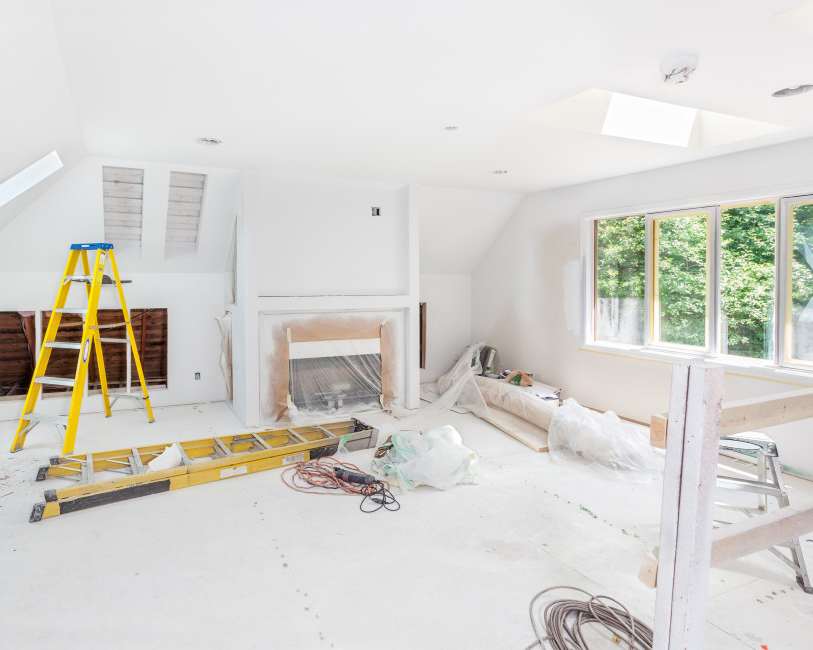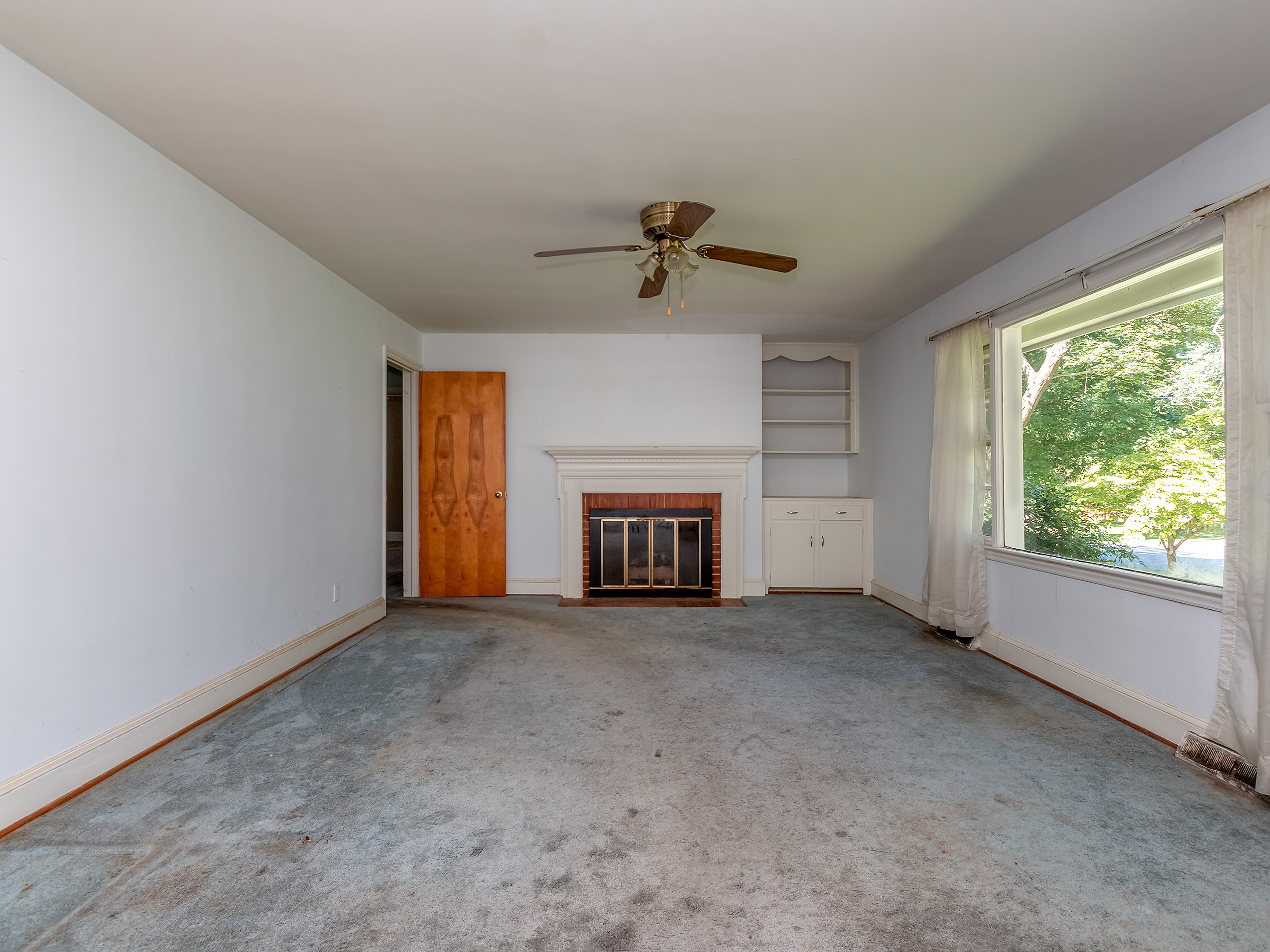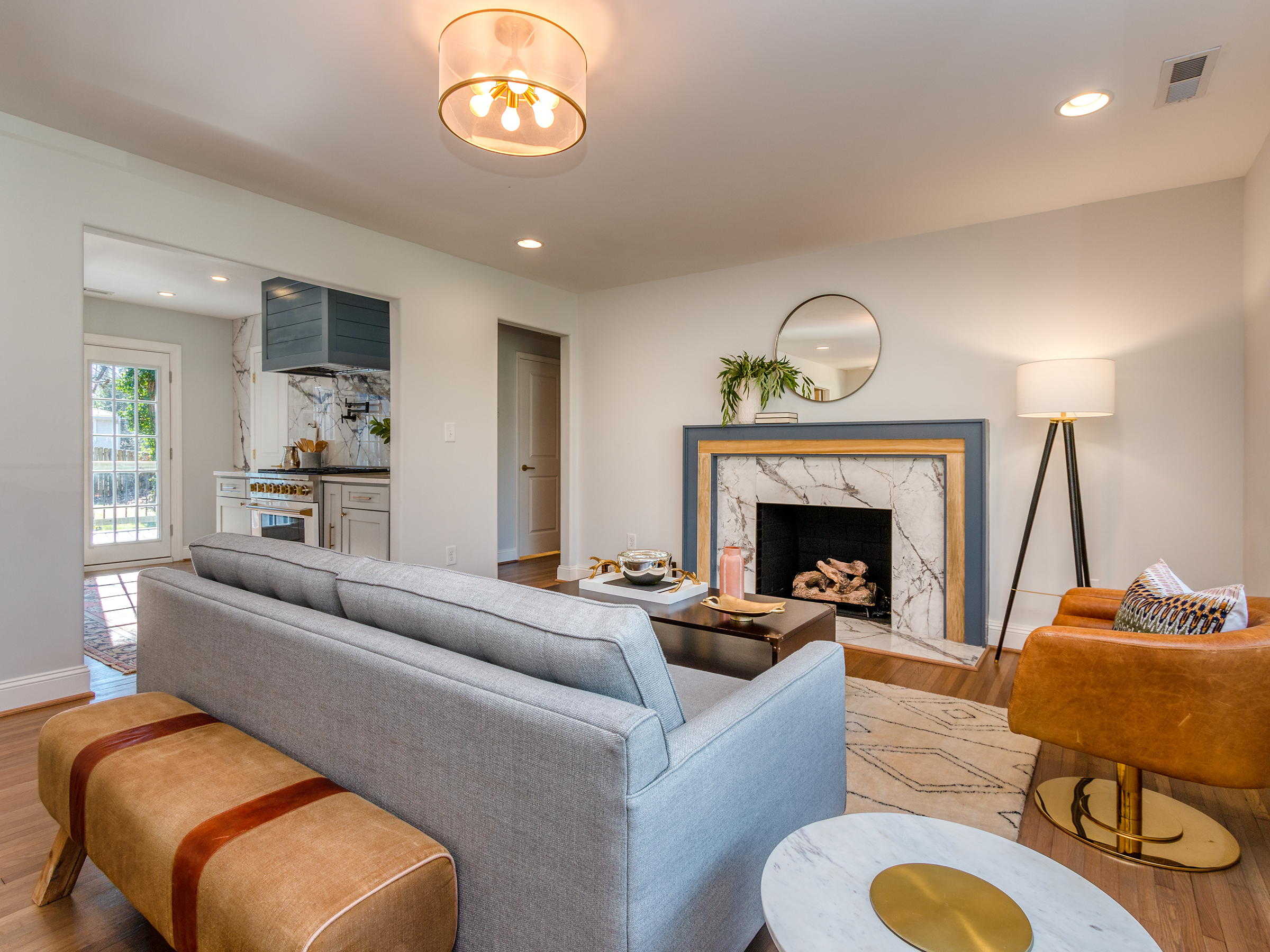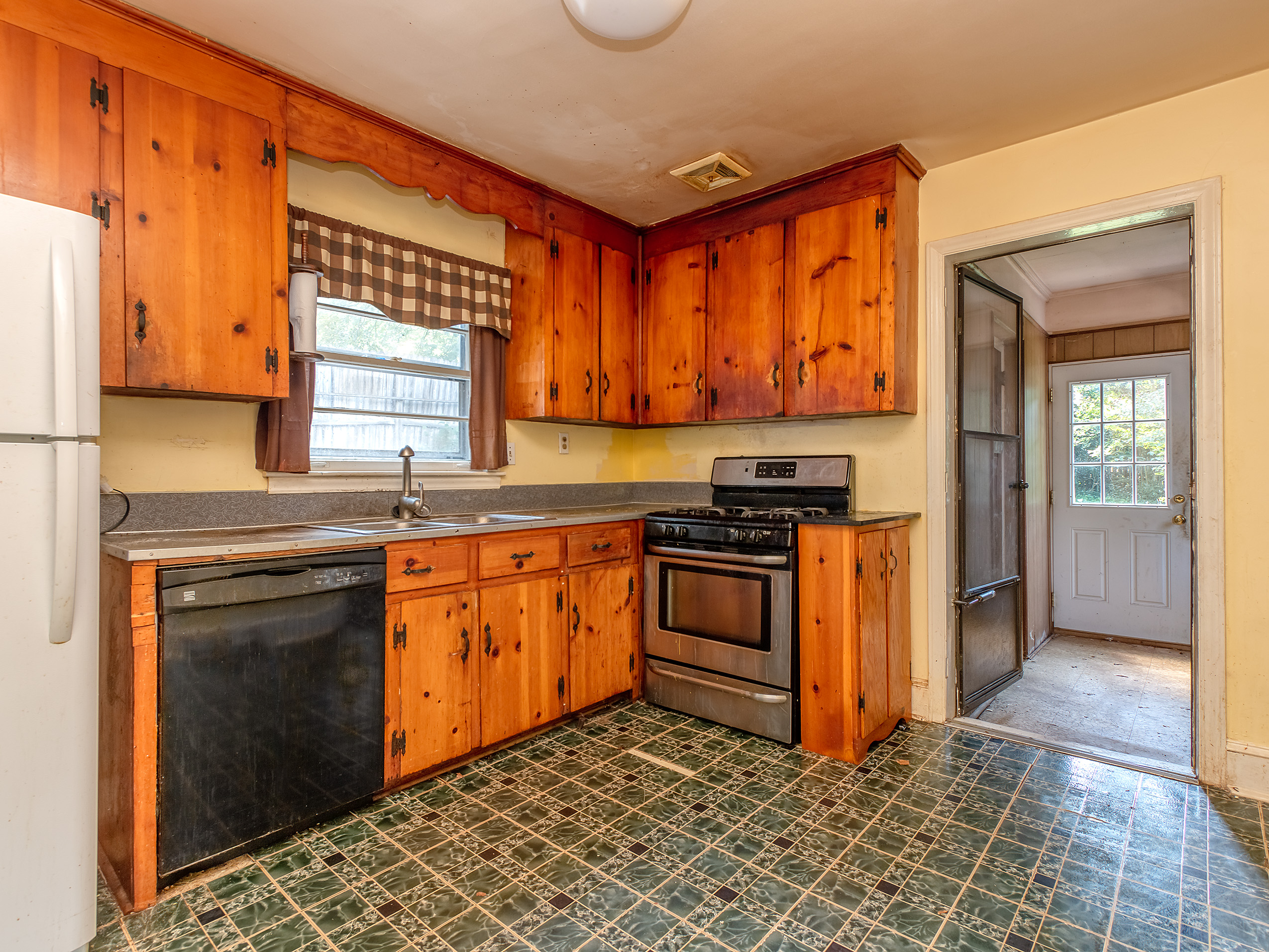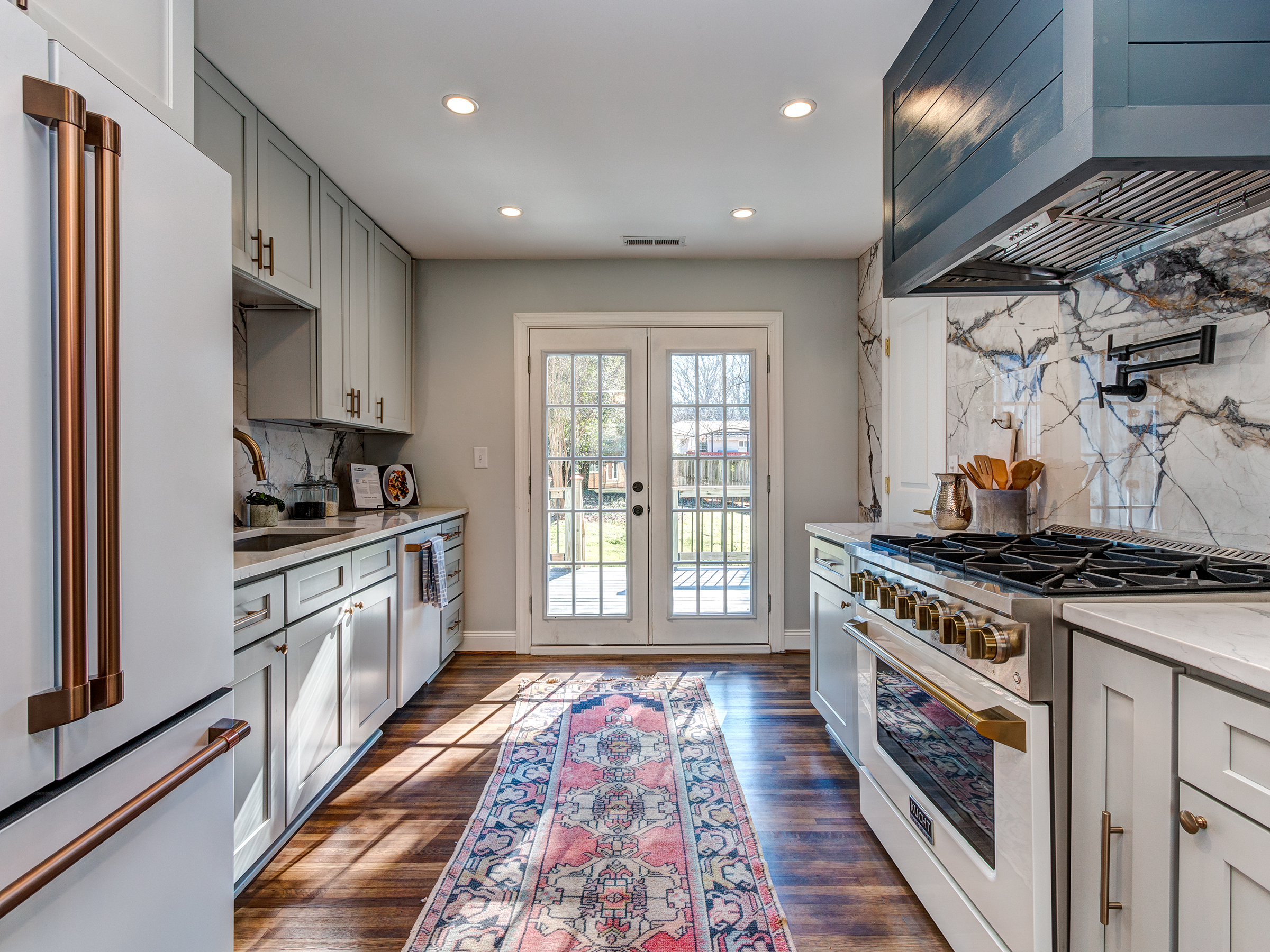Are you ready to renovate? Remodels can be a serious undertaking, but they can also pay off big. The right upgrades can add to the ease and enjoyment of living in your home as well as increase your home’s value. No matter what scale home project you are tackling, it’s best to get it right the first time. So here is our list of 10 common home renovation mistakes to avoid:
1. Starting Renovations Too Soon
Proper planning is the most important step in the renovation process. Spending some extra time up front can save you money, time, and headaches down the line. It’s also a good idea to live in your house before making any major plans to overhaul it when possible. By seeing how you live in a home, you can learn its flow and better understand what is and isn’t working for you. This knowledge can shape your renovation plans so you can actively make decisions that support how you live and improve what isn’t working for you.
2. Sacrificing Function for Form
Picking out tile, furniture, and paint colors is so exciting! We get it — we love making design selections too! However, resist the urge to plan form before function. Things like traffic patterns, window and door placement, and an electrical plan all inform how a room will be used. Not only will these decisions be costly to modify down the line, they directly affect the liveability of a space. The prettiest cabinet color in the world can’t save a poor kitchen layout.
3. Having An Unrealistic Budget or Timeline
We can blame HGTV culture for this one. While we love watching the quick turnarounds and low price tags associated with a dramatic home reveal on our favorite programs, it is far from renovation reality. No, you can’t complete a full-scale bathroom renovation in a week, and, yes, kitchen remodels often cost more than a new car. To avoid disappointment, do your research. Get quotes from multiple sources and always build a contingency into your budget so you can handle any surprises or unforeseen expenses that pop up.
4. Not Asking Enough Questions
Don’t understand how to read a land survey, engineer’s report, or architectural blueprint? That’s OK! Most people don’t so don’t be intimidated or embarrassed to ask lots of questions. Ask for added explanations, get clarity, and speak up throughout the entire process to ensure you fully understand. At the end of the day, it is your project, your money, and you will be the one living in the end result.
- Living Room BEFORE
- Living Room AFTER
5. Not Having the Right Team in Place
We cannot stress enough how important it is to have the right team in place for your remodel. Architects, designers, contractors, and other renovation professionals have done hundreds of projects so their ability to spot items you may have overlooked or fine-tune your ideas is invaluable. Ask for references, make sure they are on board with your vision, and understand how they communicate. Your relationship with your renovation team is personal – they will be in your home, sharing your space, for weeks if not months so make sure you can easily work with them.
6. Being Too Trendy
Trends can be short-lived, but good design has staying power. You want to personally love your updated space, but we always encourage our clients to think about resale too. We believe in working with your home, not against it. Renovations should complement your existing architecture and spaces. This isn’t to say you can’t be creative or mix and match styles, but you do want to create good flow and harmony.
7. Trying to DIY Above Your Skill Level
We think it’s great when homeowners want to be hands-on with a project, but be honest about your skill level and free time. DIY errors can lead to costly repairs and asking pros to work around your schedule can lead to significant delays. If you have an interest in doing some DIY on your remodel project, but don’t have much experience, things like painting, grouting tile, and limited (non-structural) demo may be more doable than plumbing and electrical work that should be left to the pros.
- Kitchen BEFORE
- Kitchen AFTER
8. Making Too Many Changes Along the Way
Modifications made mid-renovation oftentimes involve more work than meets the eye. Widening a doorway, for example, could also mean needed electrical work in order to move a light switch a few feet. While that doesn’t seem like a big deal in the grand scheme of things, change orders and small $500 or $1,000 adjustments can add up quickly. Be clear on your priorities so you know how to proceed and what changes are worth the extra money.
9. Expecting Everything To Go According to Plan
The biggest reality of remodeling is to expect the unexpected. While everyone involved wants smooth sailing, there will inevitably be surprises and mistakes. In addition to the human factor, there are simply unknowns when you plan your remodel such as what is behind that wall you intend to remove. Managing your expectations is key to managing your stress and anxiety.
10. Ignoring Your Gut
Every project is an education. You learn about your renovation, your home, and yourself. Sometimes things move fast; sometimes things move slow. Sometimes you feel like you are getting a killer deal; sometimes it feels like you are in a money pit. You can’t expect perfection or be an expert on all things home remodel, but you can- and should- listen to your gut. If something looks off or something doesn’t feel right, call it out. Have the conversation and ask the question. Renovations are too big of a commitment for you to be unhappy or in the dark.
Always feel free to reach out to the Genevieve Williams Real Estate team. We always love hearing from you and we are here to help! We can advise you on what improvements will have the greatest return on investment, guide you on what projects will help with resale down the line, and connect you with recommended local professionals from painters to plumbers.

